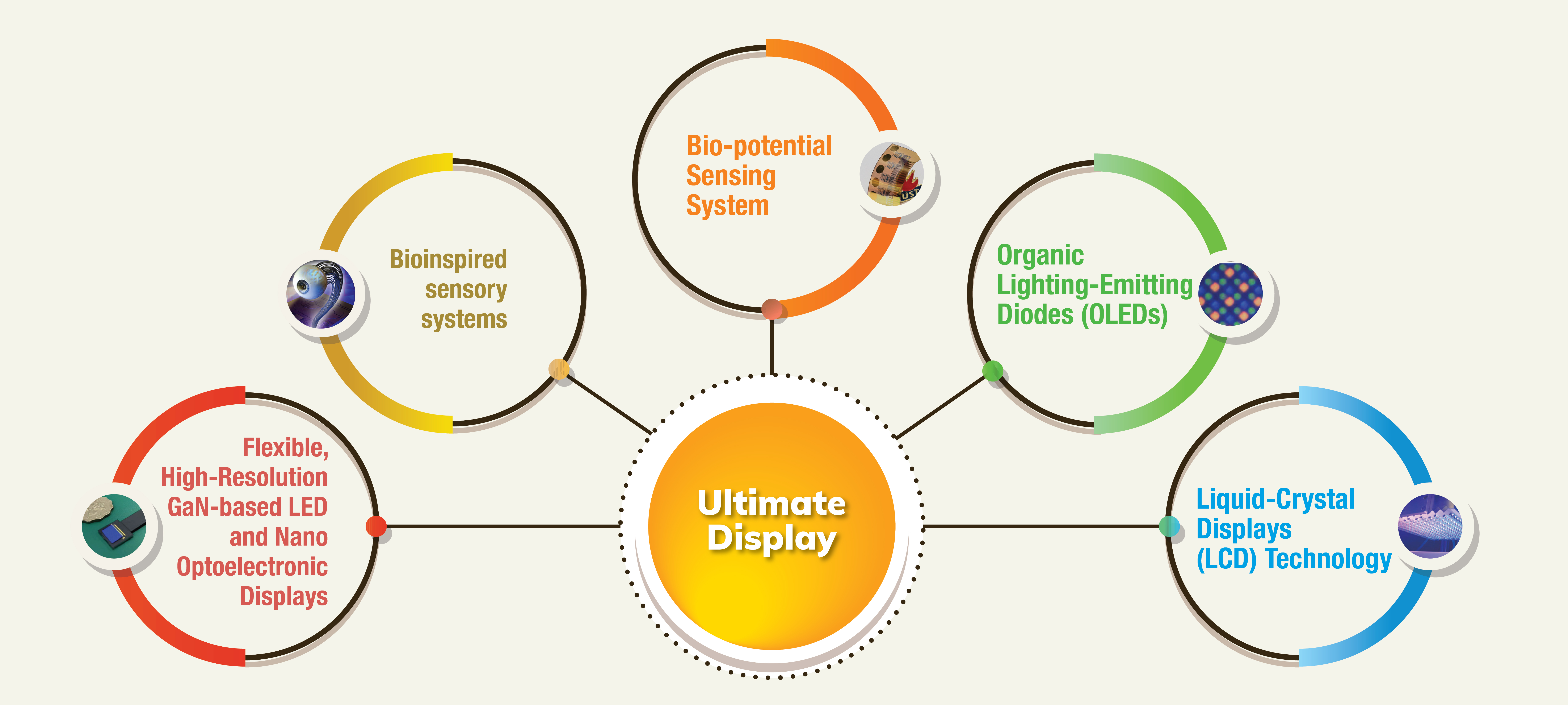
Five Core Areas
Developing advanced display technologies is always SKL's top mission. Research team uses cutting-edge equipment to explore the five major aspects:
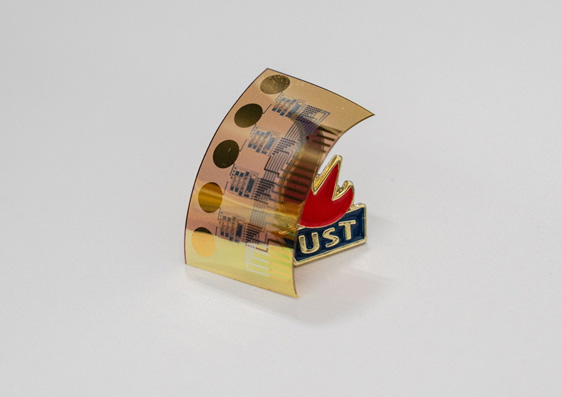
Bio-potential Sensing System
The team focuses on thin-film transistors for device process optimization, flexible integrated circuit design, smart sensor and in-memory computation.
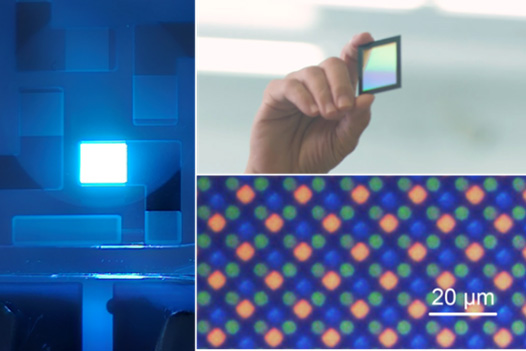
Organic Light-Emitting Diodes (OLEDs)
The SKL OLED team was supervised by Prof. Ching W. Tang. Our research was mainly focused on long-lifetime blue OLED devices and manufacturing methods for high-resolution OLED displays. We have elucidated the chemical degradation mechanism of state-of-the-art blue OLEDs and developed deuterated blue materials with significantly improved device lifetimes by suppressing degradation pathways. We have also developed ultrathin silicon nitride masks (SiNMs) and close-space sublimation (CSS) techniques for patterning OLED pixels at ultrahigh resolutions required for AR/VR applications.
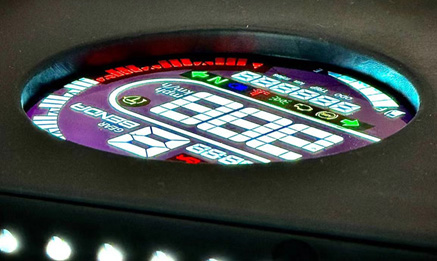
Liquid-Crystal Displays (LCD) Technology
Current research projects in the LCD field include:
• Ultra-fast response field sequential color ferroelectric LCD
• Photoalignment multidomain LCD
• Ultra-thin coatable polarizers
• 3D display utilizing fast-switching liquid crystal and photoalignment technology
• Highly efficient switchable elements and diffraction gratings for VR/AR/XR/MR Liquid crystal diffraction gratings
• Low power consumption and high transparency smart window
• Full-color dynamic LCD E-book
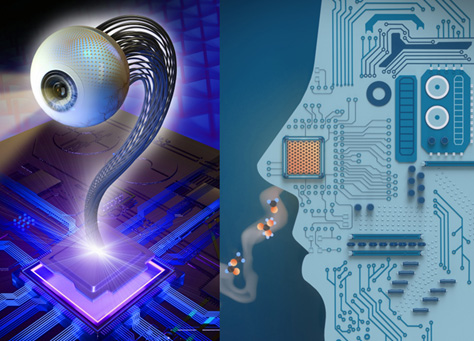
Bioinspired sensory systems
Biological vision and olfaction systems are vital for human and animals to perceive external information. Our lab conducts interdisciplinary cutting-edge research on developing artificial sensory (vision, olfaction, and so on) system with strong innovation in nanomaterials synthesis, device design, and system integration, aiming at creating human-centered intelligent sensory and interactive experiences.
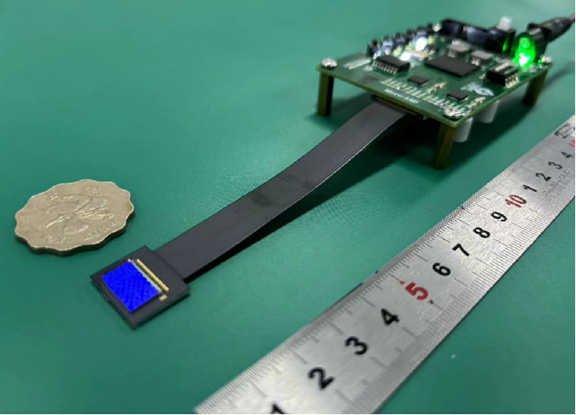
Flexible, High-Resolution GaN-based LED and Nano Optoelectronic Displays
Micro-LED technology involves shrinking the dimensions of traditional LEDs to the micron level. With the advancement of solid-state lighting using LED technology, the utilization of gallium nitride inorganic material for displays holds great promise. Leveraging its attributes such as high brightness, stability, longevity, energy efficiency, and wide color gamut, it stands poised to emerge as the mainstream choice for the next generation of consumer-grade displays


